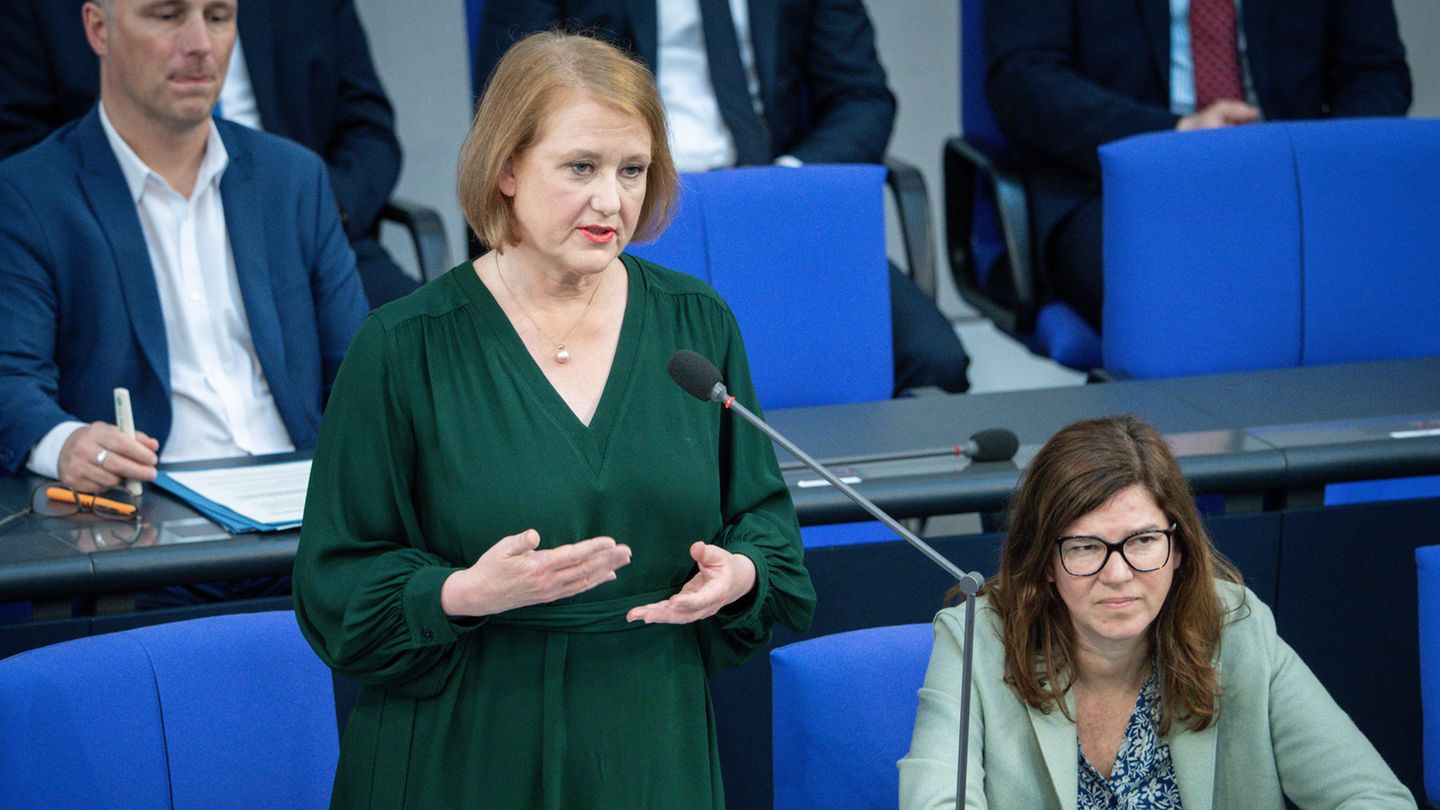Bloodless in appearance, defiant in announcement: Basic child welfare is stuck in the Bundestag – and the Green Family Minister Lisa Paus looks as if she has the faxes.
Lisa Paus speaks of great happiness, although after this performance it is questionable how seriously she meant it. As we know, things aren’t going so well for the family minister. But Paus sees it as a pleasant coincidence to be able to speak in the Bundestag here and today, on International Family Day of all days.
In any case, this coincidence gives her the opportunity to let out a little anger. Showing disappointment and frustration. Moments of happiness have become quite rare in Paus’ department – and that is also due to the members of parliament who sit here today under the glass dome of the Reichstag.
This government has done the most for families, emphasized Paus at the beginning of the government survey on Wednesday, and anyone who briefly recalls who is responsible for these families in the traffic light cabinet will have an idea who Paus sees as full of energy. Your introductory gallop through the laws that have been initiated and implemented, be it to improve daycare quality or increase child benefit, is therefore also a kind of accountability report: This government is delivering – including me. In case anyone has any doubts about it. “And I am very confident,” says Paus, “that basic child security will also prevail in the parliamentary process.”
And at that point at the latest, the brief feeling of happiness turns into optimism about purpose.
Because their draft law on basic child security is now driving the coalition partners to despair. The concept, which is intended to combine a large number of family benefits and simplify their payment, has long been controversial in the coalition. The criticism is almost unanimous that the project is too complex, bureaucratic and possibly not accurate enough. The SPD now wants to “not break anything by the knee” and only introduce the reform project gradually. The FDP recently considers a completely new draft law to be necessary. In short: The bill has been stuck in parliament since the cabinet decision in September 2023.
What’s next? And how can the “traffic light’s biggest social policy reform project” (Paus) be saved?
Now government surveys not only offer MPs the opportunity to raise these same questions in cross-examination. But also the chance for ministers to explain their policies. As is well known, there is no lack of need for explanation in the traffic light coalition, especially when it comes to basic child welfare. Because how Paus was able to demand 5,000 new administrative positions at the same time without causing new bureaucracy, or how he was able to end up with 2.4 billion euros to finance the initial twelve billion euros – that is probably something that many Greens no longer understand.
“Part of parliamentary deliberations”
But Paus is clearly tired of being the sole buffer for the damned traffic light project. She ends many of her answers with the addition that basic child welfare is “under intensive parliamentary consultation” or is “part of parliamentary deliberations” after she has patiently explained the meaning and purpose of basic child welfare. In terms of content, she has practically nothing to add. The message is that the specific design now lies with Parliament.
On the one hand, Paus has a point: the negotiations are actually stuck in parliament, and her draft law has been passed by the cabinet. On the other hand, the concept is inevitably linked to her name. If the plan fails, then Paus will fail too. It cannot be in their interest to retreat now.
Nevertheless, her appearance seems defiant and resigned, not committed or willing to talk. The family minister could have used the opportunity to make a courageous appeal to the (albeit few) members of parliament in the plenary session: come to an agreement if basic child support is to come next year, as agreed. Or for feeding possible solutions into the debate.
But Paus doesn’t go on the offensive, but rather from a distance. She repeatedly emphasizes that the number of 5,000 additional administrative positions required does not come from her company, but is based on a calculation by the Federal Employment Agency. What, by the way, is not well received in the SPD and is perceived as a cheap “blame game”: the minister herself is still primarily responsible. Paus is resigned. “The 5,000 positions referred to the original draft law,” she says, “now I think time has passed that.” After around 90 minutes, the government questioning is over and Paus is released from cross-examination.
Source: Stern
I have been working in the news industry for over 6 years, first as a reporter and now as an editor. I have covered politics extensively, and my work has appeared in major newspapers and online news outlets around the world. In addition to my writing, I also contribute regularly to 24 Hours World.




